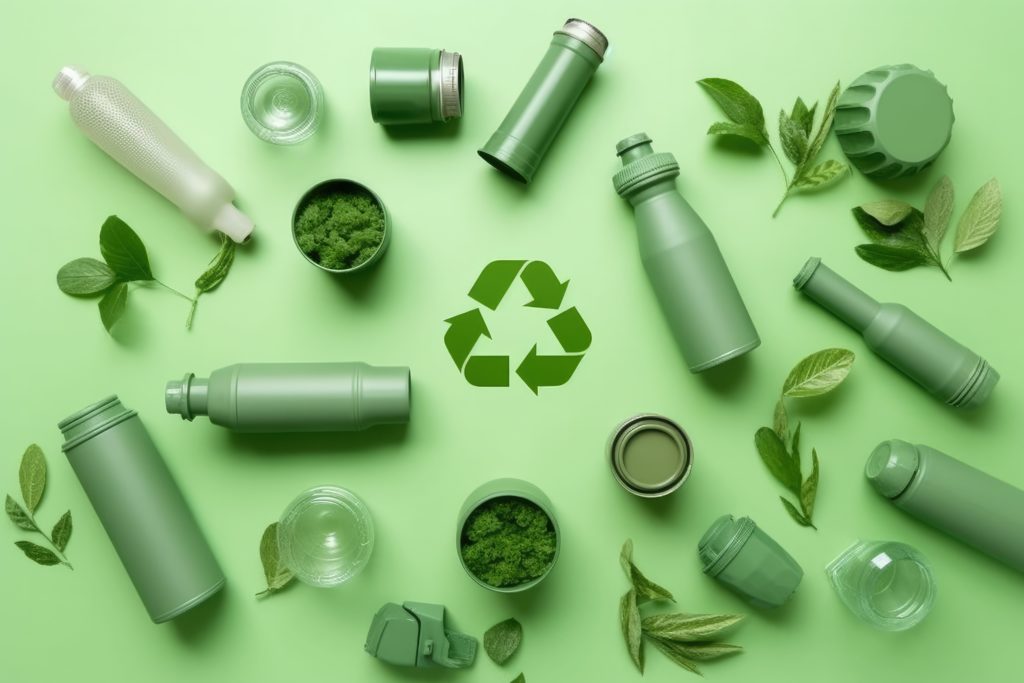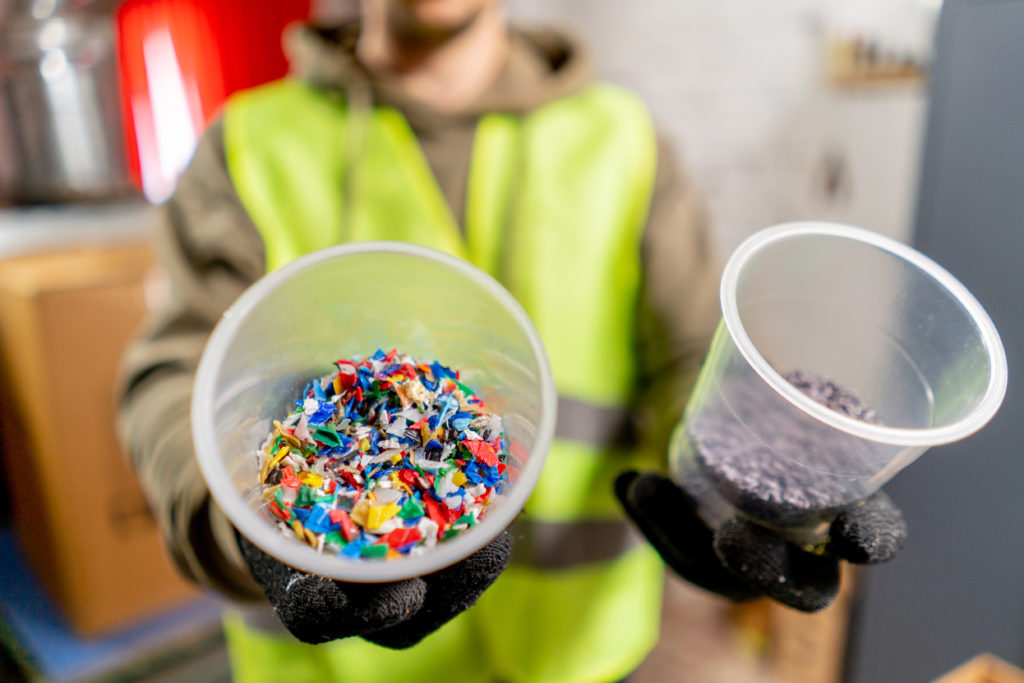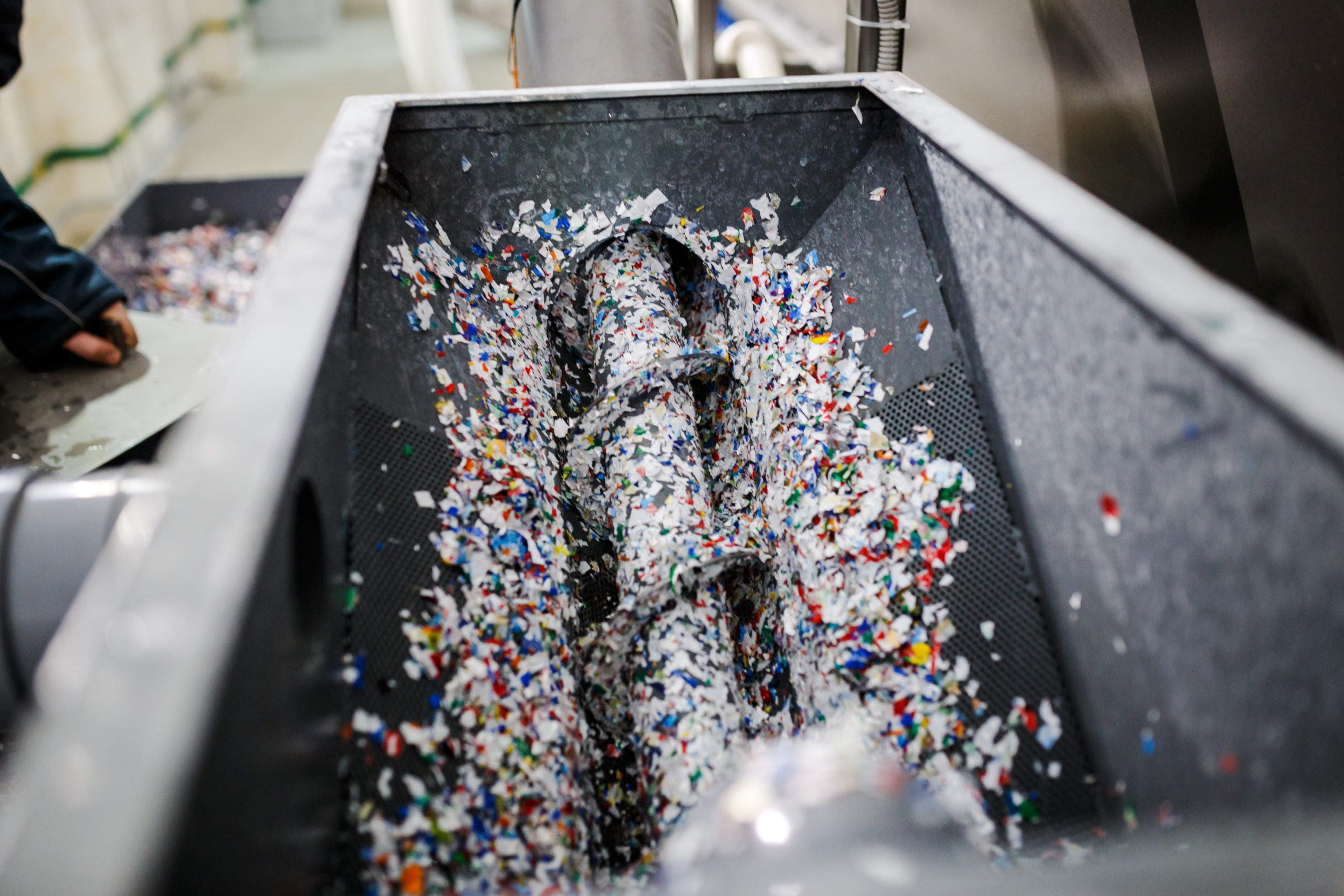Definition and process :
Sustainable and recycled plastics are polymers that are recovered, processed and reused from post-consumer plastic waste (PCR) or post-industrial plastic waste (PIR). Instead of being landfilled or incinerated, this plastic waste is collected, sorted, cleaned and then transformed back into granules that can be used to manufacture new plastic products, with characteristics close to or even identical to those of virgin plastics.
Types of recycled plastic :
There are different types of recycled plastic, each suited to specific applications depending on its properties and origin. Among the most common are recycled PET (rPET), used in food packaging and textile fibers, recycled polyethylene (rPE), used in bags and films, recycled polypropylene (rPP), used in a variety of industrial and consumer applications, recycled ABS (rABS) and many others. More broadly, recycled polymers range from commodities to high-performance plastics (PEEK, PVDF, etc.).
Many producers offer recycled mechanical or chemical grades:
- POWERPOL (PP, PA6)
- CHIMEI (ABS, PC/ABS, PC, PMMA)
- SKYTECH (rPS and rABS)
- REPSOL (RECICLEX range)
- SABIC (TRUCIRCLE range)
- ARKEMA (Virtucycle program)
- …



Benefits and environmental impact :
Recycled plastics offer numerous environmental advantages over virgin plastics. They reduce dependence on non-renewable natural resources, cut greenhouse gas (GHG) emissions associated with the production of virgin plastics, and reduce the final carbon footprint. What’s more, by diverting plastic waste from landfill and reusing it in the manufacture of new products, they help to reduce plastic waste in the environment and preserve ecosystems.
Challenges and innovations :
Despite their advantages, recycled plastics face a number of challenges, including contamination, the variable quality of recycled materials and the need for efficient collection and sorting systems. However, thanks to technological innovation and a growing commitment to the circular economy, many companies and industries are striving to overcome these challenges and maximize the use of recycled plastics in their manufacturing processes. As a result, our recycled materials producers offer qualities close to those of virgin materials.
Social and economic impact :
In addition to their environmental benefits, recycled plastics also have a positive social and economic impact. They help create jobs in the recycling and manufacturing sector, strengthen the resilience of supply chains by reducing dependence on virgin raw materials, and encourage innovation in the development of new recycling technologies and processes.
Conclusion:
Sustainable and recycled plastics thus play a crucial role in the transition to a circular economy and a more sustainable, less carbon-intensive plastics industry. Their use offers the possibility of reducing the industry’s carbon footprint, while helping to preserve natural resources and reduce plastic waste.
Our partner VALOMATEX , for example, is part of this circular economy approach, recovering and recycling dormant stocks, injection sprues, non-conforming parts and single-material purges within the plastics industry.
This is also the commitment of POLYVIA, the French plastics industry association, which campaigns for a plastics industry committed to more sustainable practices, and in particular for the large-scale implementation of plastics recovery channels.




Leave a Reply